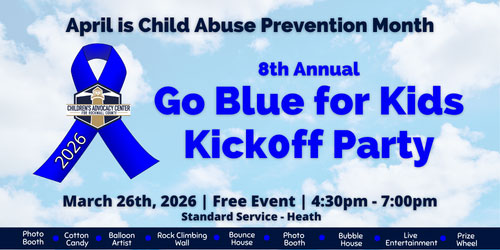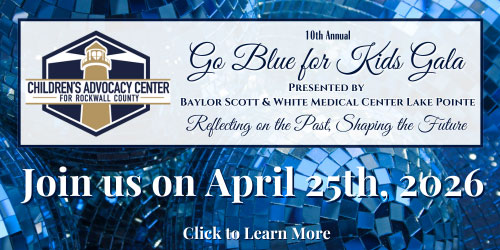(ROCKWALL, TX – Oct. 10, 2016) Baylor, Scott and White-Lake Pointe welcomed Surgical Breast Specialist Dr. Amy Eastman and Business Coach Trey Finley as guest speakers at the 7th Annual In The Pink Luncheon recognizing Breast Cancer Awareness Month on Thursday, Oct. 6, at the Hilton Dallas/Rockwall Lakefront.
Trey Finley – president and head coach of Basepaths Performance – began his presentation with an exercise involving a specific gift item found on every table in the room. Finley asked everyone at each table to come up with all the different ways their gift could be used. The items represented the theme of Finley’s presentation – “gifts that no one asks for.”
“2,200 men this year will receive a gift they did not ask for – breast cancer,” Finley said. “300,000 women this year will receive a gift they did not ask for in breast cancer. And 40,000 wives, daughters, mothers, granddaughters, and friends will receive a gift they didn’t ask for – a shorter life than they had hoped that left behind husbands and children and parents.”
In preparation for his presentation, Finley had interviewed three women diagnosed with breast cancer to learn their story. During his interview with a woman named Jessica – who was diagnosed with stage three triple negative breast cancer at age 29 – Finley asked her what gifts she had received from her diagnosis that she didn’t ask for. Jessica gave a simple yet very surprising response: cancer.

 “She said, ‘Cancer taught me how to communicate my despair through journaling and blogging,’” explained Finley. “‘Cancer taught me to appreciate what a miracle life is, and how fortunate I am. Cancer taught me to let go of what I could not control and to live in the moment. Cancer gave me friends that I would not have had otherwise.
“She said, ‘Cancer taught me how to communicate my despair through journaling and blogging,’” explained Finley. “‘Cancer taught me to appreciate what a miracle life is, and how fortunate I am. Cancer taught me to let go of what I could not control and to live in the moment. Cancer gave me friends that I would not have had otherwise.
Among those friends are Ashley and Jen, who were also battling breast cancer alongside Jessica. Ashley was diagnosed when she was several months pregnant, and eventually lost her battle with breast cancer. She left behind a husband, an infant and a preschooler. She slipped quietly away, Finley said, while her husband sang “How Great Thou Art.”
Jen and Jessica fought their cancer side by side, enduring similar treatments. Jen passed away just five days before her five-year-old boy’s first day of Kindergarten.
“Cancer is a gift that no one asks for,” Finley said. “I stand before you the bearer of these stories with an impatience and emotion I didn’t have two months ago. This is a disease that must be stopped. This is a disease that has had enough of our friends and our loved ones. Enough is enough. No more gifts.”
Finley said an important thing to take away from the stories of these women is that they, like so many who have been diagnosed with breast cancer, continued to live life to the fullest even after their diagnosis.
“Whether those who have gone before us lived or died, they lived. And that is my charge and my encouragement to each and every one of us.”
 Dr. Amy Eastman, an active medical member at Lake Pointe since 2012, relayed five important things people should know about breast cancer:
Dr. Amy Eastman, an active medical member at Lake Pointe since 2012, relayed five important things people should know about breast cancer:
1. Around 70 percent of people diagnosed with breast cancer have no family history of the disease.
2. The other 30 percent who have a family history of breast cancer are at an increased risk.
3. Screening is the key to detecting breast cancer.
4. Self breast exams do matter.
5. There is hope for those diagnosed with breast cancer.
According to Eastman, while mammogram screenings are important, they are not flawless – especially if one is found to have dense breasts. If the mammogram shows one to have dense breasts, Eastman said, it may be harder for specialists to spot any abnormalities in the screening results. In this case there are multiple options one should consider to ensure that nothing flew under the radar, such as a 3D mammogram.
“The 3D mammogram not only takes the normal views of a mammogram, but also takes multiple slices through your breasts so that when a radiologist looks at it they’re basically looking through your breasts like a book,” Eastman said. “So it increases the rate of them finding something abnormal and also decreases your risks of being called back for something that was not really of concern.”
Another option would be a screening ultrasound or, if one is at high risk of developing breast cancer, Eastman said a screening MRI would likely be recommended.
“Even if the screening mammogram doesn’t pick something up, that triggers to the radiologist that there’s something going on in your breast that you or your doctor were worried about and so you need further testing such as an ultrasound.”
For those diagnosed with breast cancer, Eastman said there’s still hope in the form of surgery, chemotherapy, radiation and hormone-blocking pills.
“There is definitely hope. Breast cancer is coming a long way and it’s very, very treatable,” she said.
Story and photos by Austin Wells, Blue Ribbon News editor / senior reporter.







